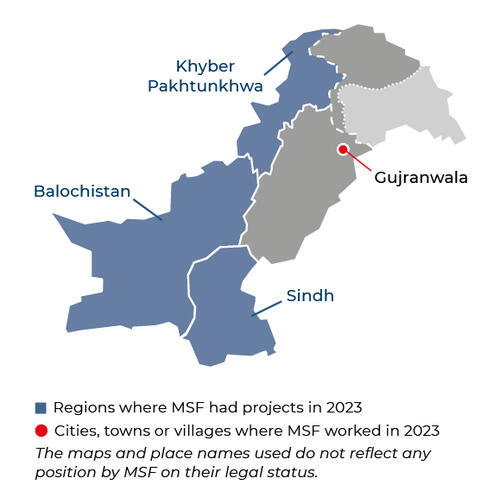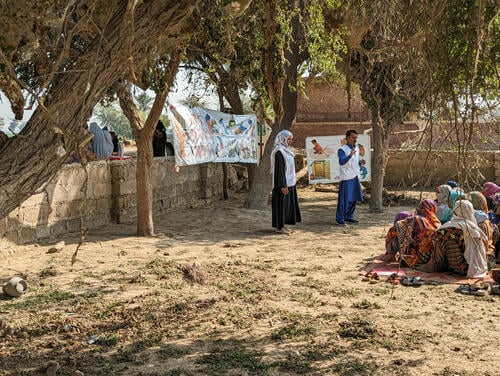Our teams provided healthcare, including treatment for malnutrition, malaria and cutaneous leishmaniasis, to flood-hit communities in Dadu district, Sindh, until November, when we transferred activities to the health authorities.
In north Sindh and east Balochistan, we ran mobile clinics, offering healthcare to children and pregnant and lactating women until June. As well as treatment for malaria and malnutrition, we improved water and sanitation provision and distributed therapeutic food and mosquito nets.
Throughout the year, we also offered reproductive, neonatal and paediatric care at three locations in Balochistan, serving local communities and Afghan refugees. Activities included emergency obstetric services, nutrition programmes and patient referrals.
Our cutaneous leishmaniasis programme registered a sharp increase in patient numbers across all five of our clinics in Balochistan and Khyber Pakhtunkhwa provinces in 2023. In addition to diagnosis, care and mental health support, we are conducting clinical research into better treatment options.
In Khyber Pakhtunkhwa, we also provide general healthcare consultations in Tirah Valley, Khyber district, for locals and people who have resettled there.
In Karachi, Sindh, MSF’s one-year intervention in Baldia rural health centre ended in July. Its aim was to introduce a model of care for hepatitis C that could be implemented at general healthcare level. The centre has since been made a ‘sentinel site’ for hepatitis C.* Meanwhile, we strengthened our screening for the disease in Machar Colony, and continued to offer diagnosis and treatment to the mostly undocumented residents through our clinic there.
In Gujranwala, Punjab, we focus on providing diagnosis and treatment for drug-resistant tuberculosis. In 2023, we started implementing shorter treatment regimens, and reinforced our patient-centred approach by setting up support groups and conducting home visits and follow-up consultations.
*A 'sentinel site' is a health facility that collects data on diseases under surveillance. It monitors the prevalence, with a view to assessing any change to health.












